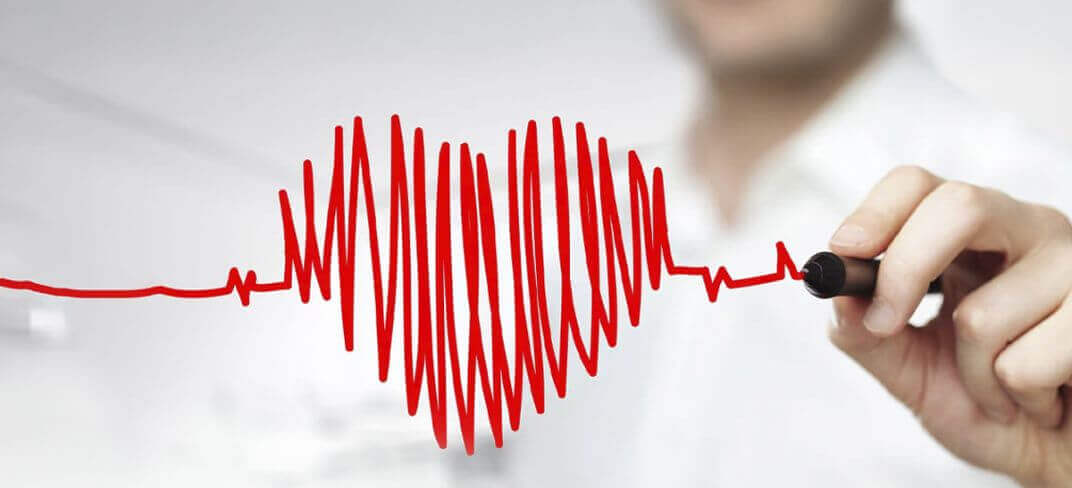Reducing the Risk of Heart Diseases. Interview with Dr. Greco.

The fast pace of our work life often leads us to neglect our health, ignoring important signals that can be early warnings of more serious conditions, such as cardiovascular diseases. In Italy, cardiovascular diseases are the leading cause of death. These diseases mostly stem from atherosclerosis, i.e. the deposition of fatty material, mainly cholesterol, on their inner walls of the arteries. Once this process begins, it continuously progresses unless countered.
So what can we do to protect ourselves and take care of our heart, the engine of our health?
We discussed this with Dr. Cesare Greco, a cardiologist who will be available for free consults during the Cardiology Open Day on February 22.
Dr. Greco, when and how should we start taking care of our heart?
First and foremost, we must be aware of the cardiovascular risk inherited from our family genetics. We now know that this genetic risk, which we once thought was unchangeable, can be counterbalanced by a healthy lifestyle and reducing risk factors starting from a young age. The first step is to adopt and teach children and young people mindful and healthy habits. This means taking care of nutrition, maintaining good sleep hygiene, and regularly practicing aerobic physical activity. Also, it's essential to not smoke, to limit our alcohol consumption, and to keep our cholesterol and blood sugar levels under control reducing fats, sugars, salt, and processed foods. This will help prevent the risk of obesity, diabetes, the buildup of atherosclerotic plaques in our blood vessels, and arterial hypertension. This applies to both sexes: the myth that women are less affected by cardiovascular diseases is untrue. After the age of 65, their prevalence is in fact higher in women, and often the disease is more severe. Cardiovascular prevention has its own peculiarities for women as well.
Let's talk about arterial hypertension. What is it and how can it be countered?
When doctors take our blood pressure, they are measuring the force with which the blood presses against the walls of our arteries, and against which the heart must pump the blood. This measurement is expressed with two values, for example, 120/80 mmHg. The first number is the systolic pressure (when the heart pumps blood), the second is the diastolic pressure (during the resting phase between heartbeats).
If one or both of these numbers are too high, this is called arterial hypertension, a very common but potentially dangerous condition. Hypertension is one of the primary risk factors for heart diseases and serious complications like a heart attack, a stroke, and a chronic renal failure. Managing arterial hypertension requires, first and foremost, changing our lifestyle, increasing aerobic physical activity, reducing our salt intake, weight loss, and, if necessary, medications prescribed by a doctor.
How can we recognize hypertension?
Hypertension is often silent, with no obvious symptoms to prompt a doctor consult. For this reason, it is essential to regularly monitor our blood pressure, especially if we have a family history of diagnosed and treated arterial hypertension. Unfortunately, the diagnosis is often made only when the blood pressure reaches significantly high levels, such as 180/120 mmHg or higher, which is considered a hypertensive crisis, a medical emergency requiring immediate intervention. Symptoms of a hypertensive crisis may include blurred vision, dizziness, a strong headache, nosebleed, shortness of breath, chest pain, anxiety, and a general sense of unease. In the presence of these signs, it is crucial to go to the emergency room immediately.
Why is arterial hypertension dangerous, Dr. Greco?
Arterial hypertension is dangerous because it increases the heart's workload, which over time can cause its muscle walls to thicken, enlarge, and eventually lose the ability to pump blood efficiently. Arterial hypertension, along with diabetes, is the leading cause of chronic renal failure: one out of three individuals with diabetes and one out of five individuals with hypertension suffer from chronic renal failure. Arterial hypertension affects the arteries, making them stiffer, and accelerates their aging, leading to atherosclerosis, a condition in which the arteries progressively narrow due to the buildup of lipid plaques. If untreated, atherosclerosis can cause, depending on the affected area, angina, myocardial infarction, stroke and, in the most severe cases, death. Preventing and managing arterial hypertension is crucial for protecting our cardiovascular health.
How can we reduce the risk of developing a heart disease?
In addition to arterial hypertension, it's important to recognize conditions such as hypercholesterolemia, the reduced glucose tolerance, and diabetes, which are other modifiable cardiovascular risk factors. Since the duration of the exposure to a risk factor is even more important than its intensity, if we detect high cholesterol or high blood sugar early, we can significantly improve our cardiovascular future with some simple changes to our lifestyle.
The key to reduce our cardiovascular and cerebrovascular risks is therefore prevention. Consulting a specialist allows for an in-depth analysis of the personal and family medical history, which is useful for identifying potential risk factors. This approach helps us to better understand our body and detect early signs of potential issues.
Therefore, it is crucial to schedule regular cardiology screenings and diagnostic tests, which are essential allies for monitoring heart health and intervening promptly when necessary.